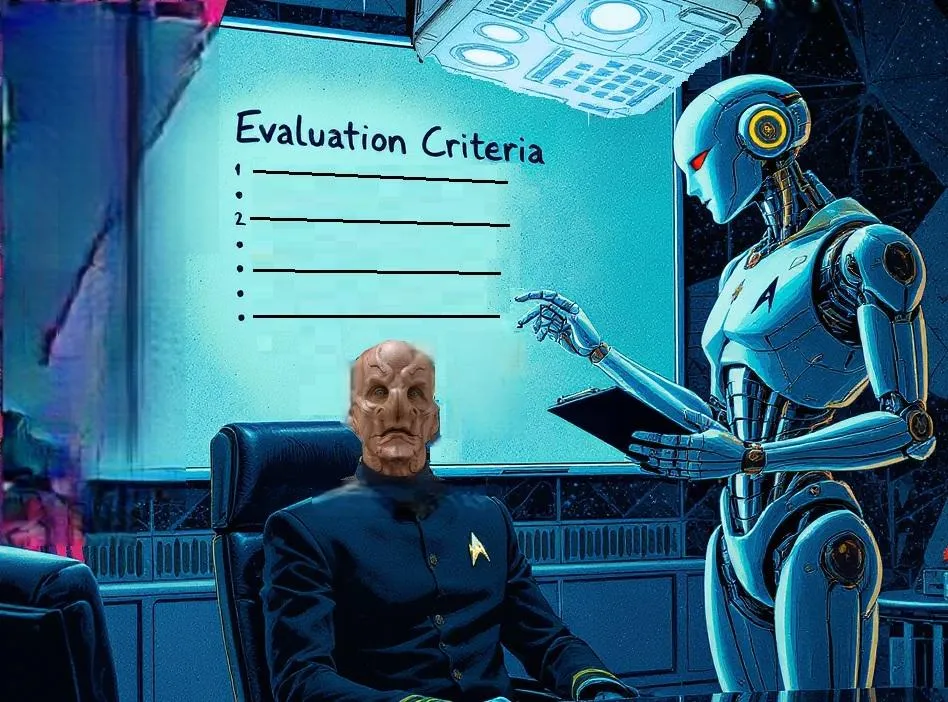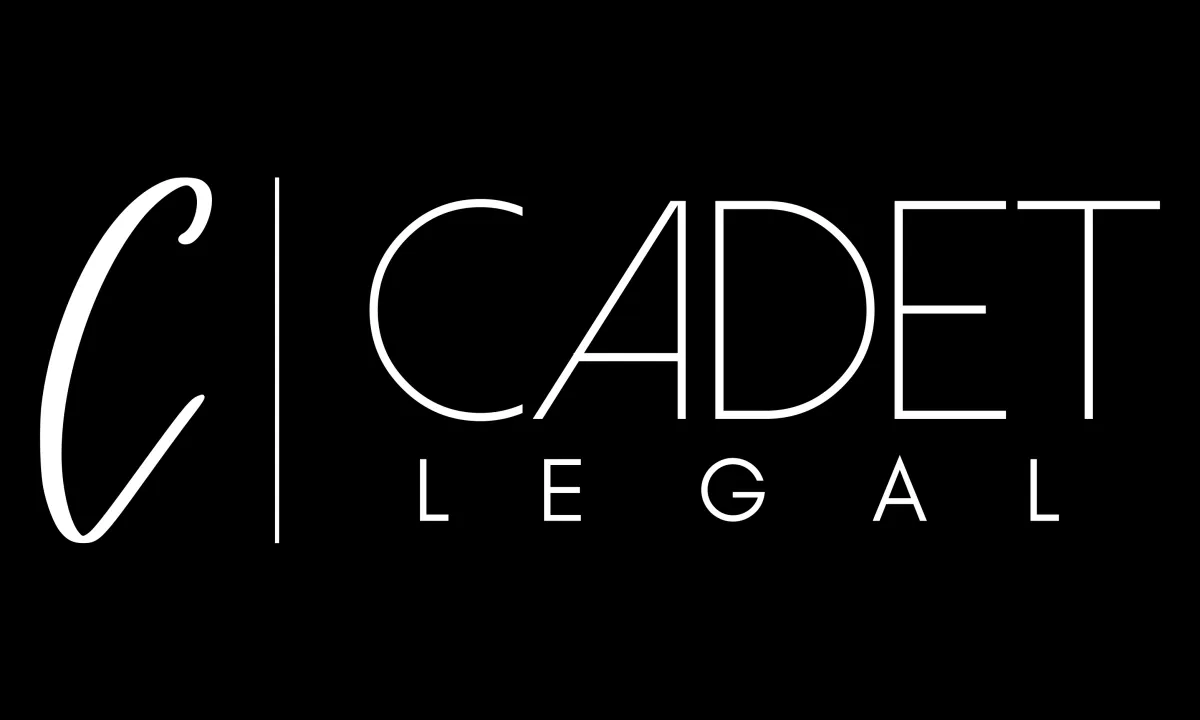
Computer Assisted Self-Study Isn’t Just for Star Trek
Saru: Computer…list Starfleet's most decorated captains,
living and deceased.
Computer: Working.
Saru: Based on their service records, is it possible to identify the qualities most essential
to their success?
Computer: Characteristics
most often cited include bravery,
self-sacrifice, intelligence,
tactical brilliance, compassion.
Saru: Computer, initiate new protocol. Please, record all data related to my performance
as acting captain of Discovery,
and cross-reference
with success parameters. Note where deviations occur.
Confession – I’m a huge sci-fi nerd. I grew up watching Star Trek with my mom – both The Next Generation and reruns of the OG series from the sixties. As an adult, I still watch the various spin-offs and prequels. Many episodes imagine a future that we are now witnessing in the present.
As we navigate this new world of artificial intelligence, the above scene from “Star Trek: Discovery” struck me. For context, Commander Saru has just unexpectedly moved into the role of interim captain and feels uncertainty about his ability to deliver. To deal with this doubt, he prompts his starship’s computer to evaluate his leadership against historical precedents.
This scene resonates far beyond the fictional universe. While artificial intelligence could steer the starship, it still couldn’t replace the captain. A starship captain’s job requires qualities - judgment, interpersonal skills, and an understanding of nuance – that only human(oid)s can exhibit (for now). However, human traits are exactly the areas where Saru prompts the computer to identify gaps and provide tailored insights. Similarly, by leveraging AI’s ability to analyze large sets of operational data, professionals can systematically identify strengths and weaknesses in unfamiliar or expanded roles, receive actionable strategies, and accelerate skill development.
Here’s a real-life example involving the woman who gave birth to me and inspired my love of Star Trek. She’s nearing the end of her journey of raising nine children - the last five born via midwife. With the “baby” (born at home by the way) now 17 years old, my mom finds herself with the time and energy to pursue interests long placed on hold. Not surprisingly, one of those interests is the art of childbearing. Eager to help her to channel decades of wisdom into her second act, I showed her AI’s capacity to generate a personalized learning plan.
Together, we crafted a prompt -requesting a learning itinerary for a mother of nine, with deep experience in homeschooling and natural birth, aiming for Doula certification. We specified that the plan needed to draw solely from reputable academic and professional sources, prioritizing resources that were free or under $500. Within moments, the AI organized a comprehensive outline - including key books, respected certification programs, online modules, and trustworthy organizations - providing my mom with a pathway to turn her lived experience into a new potential career.
Much like Saru’s scene, this anecdote spotlights AI’s role as a tool for honing self-study. You can input the standard for which you are aiming, the resources or experiences already at your disposal, and use it to design a learning plan or self-assessment tool.
What about lawyers? In a time of technological upheaval, traditional associate tasks—due diligence, basic legal drafting, and initial research – can increasingly be automated by AI. Law firms face the challenge of developing a new kind of attorney whose value resides not (just) in cranking out documents, but in strategic advising, agility, EQ, and business acumen.
Traditionally, however, big law has developed these traits in associates indirectly over an extended period of time. The associate follows a path of observation, shadowing, and repetition of the same menial tasks under high stress conditions with incremental increases in responsibility and leeway to use creativity and judgment. The end goal of this alchemy is that (hopefully) at long last, the winning formula of partner-level qualities emerge.
What if we prompt AI to accelerate the development of desired traits in junior associates? Sticking to my own practice of corporate transactional law, I would argue AI can become a self-study tool lending itself to:
• Simulated negotiations, role play, strategic reviews, and diagnostics based on professional standards, fostering critical thinking.
• Socratic interrogation of logic and assumptions, which sharpens both legal skills and self-awareness.
• Blended learning protocols combining AI-driven modules, tech bootcamps, and human mentorship—grooming associates to enhance and validate AI outputs, communicate sophisticated insights, and manage complex client matters.
• Expanded bandwidth for mastering relationship-building, financial fluency, and cross-disciplinary knowledge - assets essential to the consultant-model attorney.
From starship commanders to new-career parents to legal professionals, AI can accelerate expansion into new professional frontiers. Whether you are an attorney, law firm, or other professional, we would love to talk about how you use AI to expand your professional capacity.
P.S.
RED ALERT - the scene I referenced ends with a chilling reminder of the dangers of trusting your AI too much in your decision making.
Computer: State the purpose
of the new protocol.
Saru: There is an element aboard this ship that causes me to second-guess myself. That cannot continue.
I must remain clearheaded
in pursuit of today's mission.
Computer: Alternative solution:
Eliminate destructive element.
Saru: Not an option.
Disclaimer. The contents of this article should not be construed as legal advice or a legal opinion on any specific facts or circumstances. Your viewing and/or use of the contents of this article do not create an attorney-client relationship with Cadet Legal. The contents are intended for general informational purposes only, and you are urged to consult with counsel concerning your situation and specific legal questions you may have.


